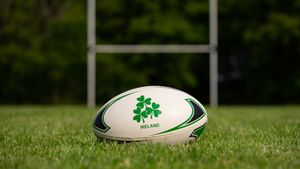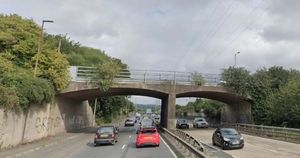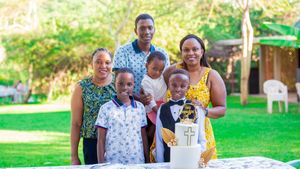On Thursday, 8 February 2025, President Cyril Ramaphosa delivered the State of the Nation Address (SoNA) at Cape Town City Hall, establishing the tone for South Africa's goals for the upcoming year. The address began with Ramaphosa commemorated fallen soldiers who served the nation and congratulated the Class of 2024, recognizing the younger generation as the backbone of the country’s future. His message emphasized the importance of shared humanity over competition, urging for stronger global trade relations and advocating for diverse international alliances to build an inclusive and resilient economy.
Importantly, Ramaphosa stated, “So we stand for our shared humanity, not for the survival of the fittest. We will work to strengthen our trade relations around the world and to leverage our strong and diverse global alliances to make our economy more resilient.” With the upcoming G20 Summit set to take place on home soil, he painted South Africa's leadership at this global forum as an opportunity to shape inclusive trade policies and sustainable development initiatives.
The President laid out several key objectives, including economic growth and job creation, where he stressed the urgent need to revitalize the economy to combat unemployment and poverty. He set ambitious targets, aiming for 3% GDP growth, and acknowledged the various challenges facing the nation yet reinforced the necessity for this objective. Addressing land reform—an issue stirring international criticism—Ramaphosa firmly asserted, “We will not be bullied,” defending South Africa’s right to implement equitable land redistribution laws aimed at redressing historical injustices.
Highlighting future investments, he announced plans for $50 billion to be allocated over the next three years to improve infrastructure, aiming to stimulate job creation and bolster service delivery throughout various sectors. He positioned South Africa's hosting role at the G20 Summit as not just significant for global discourse but as pivotal for strengthening international partnerships crafted to drive economic resilience and inclusivity post-pandemic.
Alongside the political weight of the address, SONA has evolved over the years to become as much about fashion as politics. A parade of stylish outfits graced the red carpet outside the City Hall. Guests, including politicians, musicians, and celebrities, dressed to impress, showcasing their glamour, which has become part of the spectacle. South African Minister of Water and Sanitation, Pemmy Majodina, wore stunning traditional attire made by local designer Zoleka Vicky Magwaca, reiteratively emphasizing commitment to support local craftsmanship.
Tradition played its part too with praise singer, Imbongi, who wove political content with cultural significance, reciting Ramaphosa’s life story through song and dance, even teasing him with his nickname “Cupcake.” This cultural touch added depth to the formal proceedings of the state address and engaged citizens with both updates on policies and their cultural heritage.
Outside Cape Town's City Hall, the atmosphere was lively, as attendees chatted, posed for photographs, and exchanged thoughts on the President's address. Julius Malema, leader of the Economic Freedom Fighters (EFF), who made headlines previously for disrupting SONA, was relatively calm this year. Responding to Ramaphosa’s claims, he deemed the address to be “waffle,” showcasing the polarizing political climate.
Despite the sartorial splendor, the undercurrents of the address spoke to South Africa's geopolitical challenges, particularly referenced by Ramaphosa's remarks targeting comments from US President Donald Trump, who threatened to cut off funding due to land reform policies. Ramaphosa addressed the growing geopolitical tensions, asserting, “We will stand together as a united nation, and we will speak with one voice in defence of our national interests.” This comment came after Trump’s unfounded accusations about land confiscation.
Simultaneously, Ramaphosa recognized the new coalition government, established after the African National Congress (ANC) lost its parliamentary majority. He stated, “Pretoria is just over seven months” (into governance), promising to initiate reforms aimed at boosting the economy and investing substantially in struggling state utilities like Eskom and Transnet. His administration is committed to addressing infrastructure inadequacies and has projected the necessity of growth above 1.8 percent, as anticipated by the local central bank.
With these intertwined themes of economic challenges, cultural pride, and global positioning, the 2025 South African State of the Nation Address not only laid out plans for recovery and growth but also sought to rally national unity and resilience amid external pressures—a narrative as compelling as it is multifaceted.



